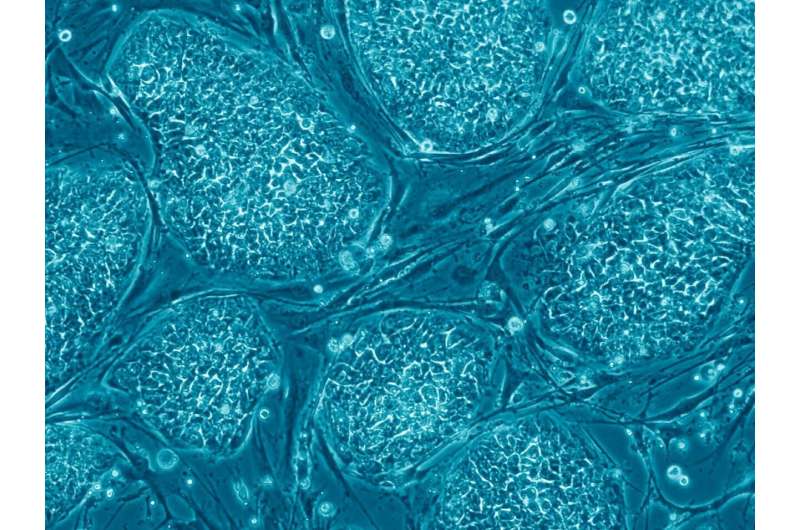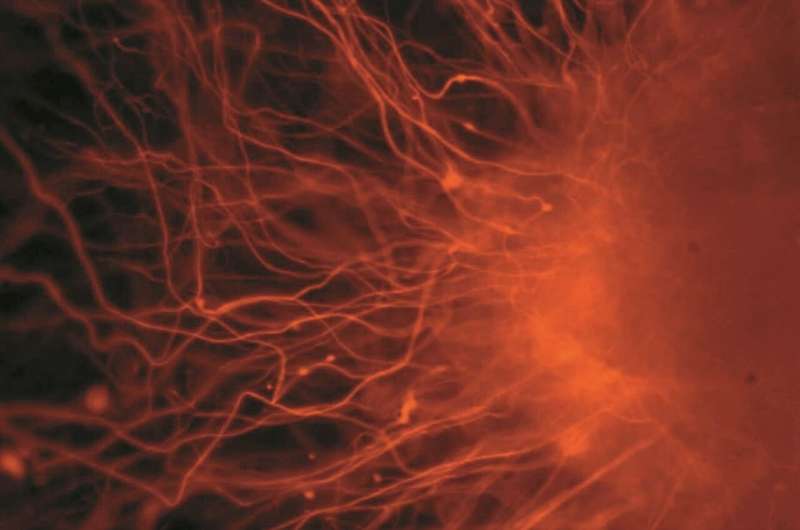This article has been reviewed according to Science X's editorial process and policies. Editors have highlighted the following attributes while ensuring the content's credibility:
fact-checked
peer-reviewed publication
trusted source
proofread
Cancer-related mutations appear in stem cell derivatives used in regenerative medicine, shows study

Human pluripotent stem cells are cells that have two very important traits—a seemingly endless proliferative capability and the amazing ability to give rise to any cell in our body. These characteristics make these cells a great tool for research of early human development as well as disease modeling and drug discovery, and most importantly, as a cell source for regenerative medicine.
Although human pluripotent stem cells can be propagated in culture for long periods of time, it is known that they can also acquire genetic aberrations conferring a selective advantage in the culture conditions. This advantage then allows a single cell with the aberration to take over the population of cells.
The laboratory of Prof. Nissim Benvenisty at the Azrieli Center for Stem Cell and Genetic Research at the Hebrew University has a been pioneer in identifying cancer-related genes with such mutations and in developing a bioinformatic algorithm to identify them.
The recent increased popularity of pluripotent stem cell use in differentiation studies and their use in clinical trials, has now led the graduate students Elyad Lezmi and Jonathan Jung, and Prof. Benvenisty to try and illuminate the state of mutation abundance in these cells and their differentiated derivatives used in basic and clinical research.
Their study has recently been published in Nature Biotechnology. With their bioinformatic tool, the investigators analyzed more than 2,200 samples from more than 140 different human pluripotent stem cell lines, in hopes of unveiling the abundance and severity of these cancer-related mutations acquired in culture.

The researchers show that a staggering 22% of the samples analyzed appeared to have at least one cancer-related mutation, and at least 70% of those were acquired throughout their propagation in culture. Mutations acquired during the differentiation period, although rare, do still occur, and as such require the surveillance of the end product of the differentiation protocol.
The most predominant gene in the analysis was P53, the most known tumor suppressor gene in human cancers. Deeper analysis of the mutations revealed the similarity of mutations acquired in culture in stem cells to those appear in patients' tumors. These mutations caused a delay in the exit from pluripotency of the stem cells and in their differentiation into somatic cells.
This led the researchers to suggest that these acquired mutations do not only confer an advantage in culture, but also have an effect on the cell fate transition—a crucial point of concern due to the rise of differentiation studies in stem cell research and clinical application.
"The mutations found by us were not known to the investigators that utilized the cells and published their research, and as such could have brought misleading conclusions, especially when phenotypic effects have been shown to exist," says Jonathan Jung, an author on the paper. "The need for periodical evaluation of the culture is important for the field to move in the right direction, especially for clinical utilities."
More information: Elyad Lezmi et al, High prevalence of acquired cancer-related mutations in 146 human pluripotent stem cell lines and their differentiated derivatives, Nature Biotechnology (2024). DOI: 10.1038/s41587-023-02090-2
Journal information: Nature Biotechnology
Provided by Hebrew University of Jerusalem





















